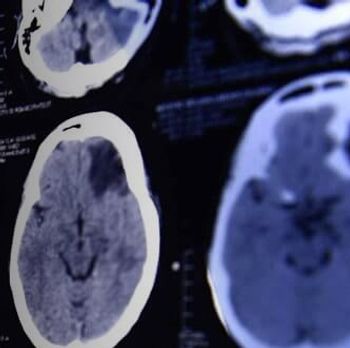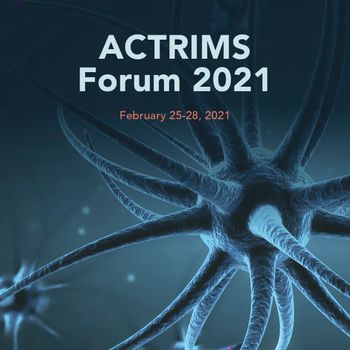
The chief scientific officer of the Parkinson’s Foundation and adjunct associate professor in the Department of Neuroscience and Physiology at New York University School of Medicine discussed the adoption of telemedicine in Parkinson disease care.

Matt Hoffman, Editorial Director for NeurologyLive, has covered medical news for MJH Life Sciences, NeurologyLive’s parent company, since 2017. He executive produces the NeurologyLive Mind Moments® podcast, and hosted the Medical World News show Deep Dive. Follow him on Twitter @byMattHoffman or email him at [email protected]

The chief scientific officer of the Parkinson’s Foundation and adjunct associate professor in the Department of Neuroscience and Physiology at New York University School of Medicine discussed the adoption of telemedicine in Parkinson disease care.

"Mind Moments," a podcast from NeurologyLive, brings you exclusive interviews with Stephanie J. Nahas, MD; Bruce Cree, MD, PhD, MAS; Sana Somani, MD, MBBS; Hubert Fernandez, MD; Daniel Ontaneda, MD, PhD; and Richard Gershon, PhD.

Just weeks after receiving an EU marketing authorization, the FDA has issued a complete response letter to Biogen for its sBLA related to the subcutaneous administration of natalizumab (Tysabri).

Formerly known as BIIB067, the antisense oligonucleotide is expected to be available for rapidly progressing patients in mid-July 2021, and for the broader SOD1-ALS population in the fall.

"Mind Moments," a podcast from NeurologyLive, brings you an exclusive interview with Daniel Claassen, MD, MS.

The MTB is built to safely, remotely, and effectively collect data from assessments that measure the executive function, language, memory, and processing speed of adults, and can be captured via smartphone.

In an AAN plenary talk, Mark H. Tuszynski, MD, PhD, detailed the work he and colleagues have done to push stem cell therapy from the lab to the clinic to improve care for spinal cord injury.

Aducanumab currently sits before the FDA for review for the treatment of Alzheimer disease, with a PDUFA date set for June 7, 2021.

Data from a cohort of more than 900 individuals suggest that while total tau can add cross-sectional value in certain contexts, neurofilament light served better for prognostication of cognitive decline and imaging changes.

The 2021 AAN Annual Meeting will be held virtually from April 17-22. Follow along with coverage from NeurologyLive, including expert interviews and session recaps.

"Mind Moments," a podcast from NeurologyLive, brings you an exclusive interview with Bhooma Aravamuthan, MD, DPhil.

A case report showed 1 patient in the vaccine arm developed Guillain-Barré syndrome, though 1 in the placebo arm also developed the syndrome, implying coincidence rather than causation.

The FDA cited a lack of statistical significance in some of the subgroups of dementia, and insufficient numbers of patients with certain less common dementia subtypes as lack of substantial evidence of effectiveness to support approval.

Progressive forms of multiple sclerosis present a number of challenges for MS specialists, the biggest of which being whether or not disease-modifying therapy is required.

The SNP-targeting agents showed no evidence of dose response in PRECISION-HD2 and similar results in PRECISION-HD1, though development of SNP3-targeted agent WVE-003 in HD will continue.

Howard Fillit, MD, the founding executive director and chief science officer, Alzheimer's Drug Discovery Foundation, shared his thoughts on the recently published data.

"Mind Moments," a podcast from NeurologyLive, brings you an exclusive interview with Brian Grosberg, MD.

The Astellas Pharma agent earned an indication for children aged 3 years and older, after its original overactive bladder indication in 2012.

With the FDA is set to decide on the possible approval of aducanumab in June, the remaining pipeline for Alzheimer therapies is loaded with potential for the future.

Extrapolated comparisons from the ORATORIO trial suggest that patients with primary progressive multiple sclerosis can experience major delays in confirmed time to wheelchair requirement and disease progression.

NeurologyLive’s coverage of ACTRIMS Forum 2021 featured a number of insightful conversations with leading experts in multiple sclerosis care.

The oral S1P1 modulator joins a number of other agents in its class, and has also been submitted to the European Medicines Agency for approval in the treatment of MS.

Despite showing better composite scores for cognition and ability to perform activities of daily living, a number of the secondary outcomes showed mixed results with the Eli Lilly investigational agent.

The high-dose cohort in part 1 of the FIREFISH study also showed that more than 50% of infants could sit without support and more than 90% could feed orally.

The partnership is aiming to develop a novel approach to damage repair in multiple sclerosis from a number of potential drug candidates.

"Mind Moments," a podcast from NeurologyLive, brings you an exclusive interview with Stewart Factor, DO.

A systematic review of 43 studies suggests that MR-guided LITT and radiofrequency ablation had lower rates of Engel Class I outcomes, but fewer major complications post-procedure.

In a study of more than 600 patients, single medication classes were overused by 70% of patients, and less than half of the cohort was taking a preventive treatment.

The 2-stage study is an open-label, 2-stage clinical trial designed to evaluate safety and dose-escalation (stage 1) and safety and efficacy (stage 2) of surgically delivered AXO-AAV-GM2.

Additionally, the therapy’s developer Yumanity Therapeutics announced the results of a single ascending dose study and enrollment in a multiple ascending dose study.